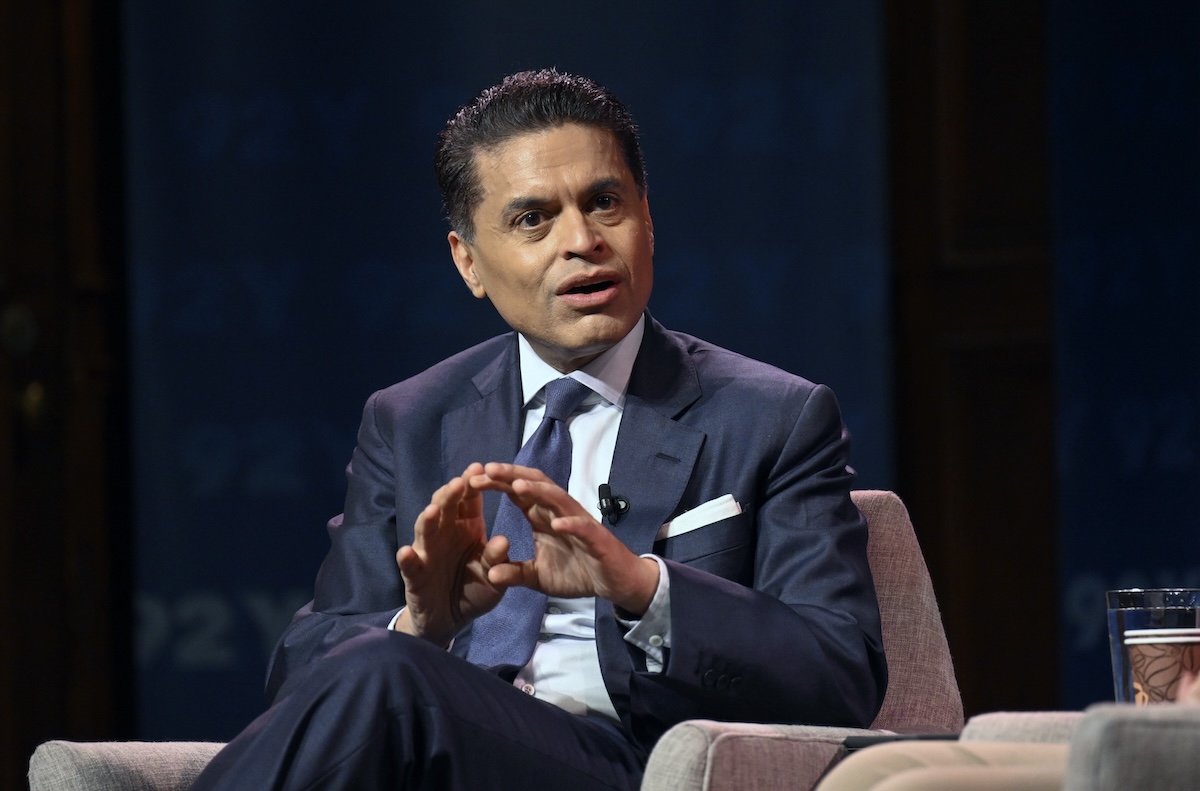Fareed Zakaria acknowledges in Age of Revolutions: Progress and Backlash from 1600 to the Present, that “scholars who detail the way that material conditions and individual freedoms have improved over the centuries are often dismissed as peddlers of ‘Whig history.’” The CNN host perhaps wrote the line as a sort of inoculation. By his dual-characteristic definition of that out-of-fashion interpretation, the author amounts to just half a Whig.
One gleans the homo economicus vibe of Age of Revolutions in its omission of, say, the Islamic Revolution in Iran and in its highlighting a peculiar place, the Netherlands, associated explicitly with money and economics and not religion. Zakaria calls the Dutch Republic the outcome of the world’s first liberal revolution. Decentralized governance and innovations in trade and finance allowed it to flourish.
As Zakaria tells it, Dutch dominance never ended. It migrated—first to England and later to the United States. “Eventually, the ambitious Dutchman would be crowned king of England, planting the seeds of the liberal Dutch Revolution across the Channel,” he writes of William of Orange. “That ‘Glorious Revolution’ ensured that the Dutch experiment in politics would take root in another powerful European state, one that would soon become the first global superpower of the modern age.” Whereas France destroyed and banned the flying-shuttle weaving device upon its introduction in the country, the English Parliament “passed a new law making the destruction of industrial machines punishable by hanging.” France’s guild mentality governed peoples to their own detriment. Freedom fueled prosperity.
The chapter on the French Revolution, however, correctly characterizes it as a retreat rather than an advance for liberty. From Edmund Burke to Will and Ariel Durant to Simon Schama, worthy book-length treatments of that momentous event abound. In 35 pages, Zakaria provides a solid CliffsNotes version fit for our CliffsNotes age. He considers how symbolism trumped substance in the storming of the Bastille, which freed but seven prisoners. He points out that the vast majority of the 17,000 or so guillotined belonged to the lower classes ostensibly championed by the revolutionaries. He ridicules the reinvent-the-wheel, political-neat-freak mentality that resulted in a proposal to replace existing regions by a geometric grid without reference to rivers, mountains, and other natural boundaries. Zakaria recognizes the revolution’s implications 235 years later: “Even today, battles between liberals and conservatives are part of the political war that began in 1789.”
Alas, this otherwise laudatory chapter spoils the book, and its unsurprising ending, rather early. Zakaria strangely refers to Robespierre as neither a Jacobin nor a radical but a “populist.” In a ham-fisted way, he cloaks reviled figures from the distant past in modern garb. Even when reading about the 18th century, the reader knows Zakaria is writing about the 21st. It feels forced, and the book reverse-engineered—as if the conclusion occurred first to the author, who then set about plucking items in history to advance his grievances regarding 2024.
For not the first time did a Donald Trump monomania ruin what seemed like an otherwise interesting project.
Zakaria justifies excluding the American Revolution by calling it “a war of independence” fought by the colonists to “preserve their rights as Englishmen.” This may strike his U.S. readership as a slight even if, in a narrow sense, it rings right. The revolution’s transformational effects occurred later and primarily outside the borders of the U.S.; colonists fought to save something threatened and not to create the world anew, even if in a sense they indirectly did that. Zakaria, true to his obsessions with material questions over ones of religion, culture, idealism, or other instigators of social upheaval, devotes a chapter to what he calls the real American Revolution—the Industrial Revolution—before openly fixating in the second half of the book on what animates, at least below the surface, the first half: modern America, which he does not quite understand.
Unfortunately, common errors conforming to elite wisdom highlights the superficiality here. For example, in lambasting Speaker of the House Mike Johnson’s Christian allegiance, Zakaria expounds “the separation of church and state,” words nowhere found in the Declaration or Constitution, as one of the “pillars” of America’s founding. After the ratification of the Constitution, most states required a Christian religious test for holding office, with Massachusetts abolishing its state support of congregationalism during Andrew Jackson’s presidency. Did the people who wrote and ratified the Constitution return to their states only to violate it, or did they possibly understand its nuance better than Fareed Zakaria?
Zakaria claims that Herbert Hoover, in an effort to contrast him to a supposedly more pragmatic Franklin Roosevelt, “tended to conform to the pro-market ideology.” The Hoover Dam, the top marginal tax rate rising from 25 percent to 63 percent, and Smoot-Hawley beg to differ.
Writing as though FDR’s “economic royalists” rhetoric and the “Hooverville” pejorative coined by his press agent, the Richard Nixon presidency, Iran-Contra, the Robert Bork and Clarence Thomas hearings, and much else never happened, Zakaria writes of the Clinton-era scandals: “The era of hyperpolarization had begun.” It seems akin to saying a fistfight started the moment the pummeled opponent began to punch back.
Populism, which Zakaria strains to depict as such in earlier periods to such a degree that it doubles as an epithet for historical figures he dislikes, always and everywhere errs in The Age of Revolutions. Yes, bureaucratic guardians make mistakes. He concedes, for instance, that experts “failed the public” during the pandemic, citing “telling people not to wear masks” as an example of this. That came to his mind as the way they failed the public? Not for such excesses as, say, arresting that guy for paddleboarding at the beach in Malibu, but instead for its rare moments of restraint did the authorities fail on COVID? Hmmm.
Through this pseudo-concession, in which he does not fold on some smaller point such as the exaggerated boasts on the effectiveness of the vaccines or maybe local governments removing hoops from backboards in public parks, but rather doubles-down in essentially saying elites did not go far enough in restricting private behavior, Zakaria displays the template for the way he deals with people holding opposing views. To understand such people, it helps to look through their perspective. To win them over, it helps to grant some points. The author’s Manicheanism does not allow for any of this, and it’s fatal to the book as a means of conversion.
American history overflows with populists, and though often hard to pigeonhole politically, they generally focused their efforts on a more active state. Strangely, the likes of Sockless Jerry Simpson, Huey Long, and Father Charles Coughlin—despite the color they bring and the ease with which an author can debunk their demagoguery—did not make the editor’s cut. It is not as though a critique of populism, whose appeal to mass opinion often strips it of an intellectual coherence (hence right and left populism), could not have been written. It is just that this seems beyond Zakaria, who similarly lacks coherence in his adherence not to a general outlook but instead to believing in the wisdom of the powerful, and for whom a hatred of anything smacking of the populist “strain” is a core passion.
The rote quality of his commitment to the freedom that he portrays as threatened by history’s populists monotonizes until it jars in his William Jennings Bryan–type panaceas for improving the United States, which makes hollow his praise of the Dutch Republic. He advances “universal national service,” “wealth redistribution,” “free preschool,” “subsidized childcare,” and other gorilla-state solutions. The reader almost waits for him to advocate bimetallism and Grange banks, too. We are all populists now?
Populist tides ebb because populism lacks intellectual coherence, who cannot agree on a Nicene Creed. The Age of Revolutions fails for the same reason. Sure, the messenger who received a B.A. from Yale, a Ph.D. from Harvard, an honorary degree from Brown, and a teaching gig at Columbia undermines his own message. But the message owes more to cultural tics than to any clearly defined ideas, thus making it more prejudice than principle, which in four words describes populism, too. Fareed Zakaria in this sense went native.

